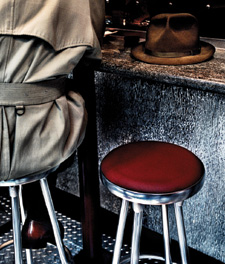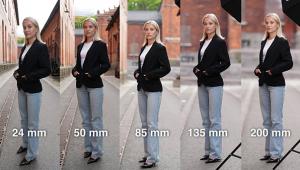The Photo Art Market; Adding Income While Sharing Your Personal Vision
With commercial clients turning more often to stock photos, many photographers
are looking for ways to keep themselves in business. At the same time, art photography
markets are looking for new and fresh images. These art photography clients
can be the more traditional consumer markets such as galleries and individual
collectors. They can also be the more commercial art clients such as corporate
fine art buyers, corporate art consultants, paper products publishers, book
publishers, and interior designers.
You can now explore this growing opportunity to find the best--and hopefully--widest
possible audience for your art photography images. In this article we talk with
three professionals and take a look at how they work with art consultants and
galleries to find art clients, plus how you can create art promotional materials
for your fine art work.
 |
|
|
Susan Baraz is the marketing consultant for PhotoTherapy (www.phototherapists.com)
and AtEdge (www.at-edge.com)
and, since 1987, the chair of the all-volunteer organization Focus On AIDS (www.focusonaids.com),
the first AIDS photography benefit of its kind and the largest fine art photography
benefit/auction in the US. Baraz is also Co-Chair of The Lucie Awards and Head
of Judges for the International Photography Awards, plus is a speaker for art
schools and photo organizations nationally and internationally.
Jesse Diamond (www.jessediamond.com)
was trained as a musician and studied visual arts as a secondary course. Inspired
by a trip to Africa in 1995, Diamond decided to concentrate entirely on photography.
His clients have ranged from Sony Records to the Harper/Collins series "A
Day In The Life." In 2004, he was selected as one of eight "Photographers
of the Year" by the International Photography Awards. Nazraeli Press published
his book Drum Circle last year.
 |
|
|
Allan Bruce Zee (www.allanbrucezee.com)
works with office, healthcare, and interior designers for both commercial and
residential art photo applications. He also sells directly to individual collectors
for home and office. He has focused much of his national marketing on working
with art consultants and galleries that do a lot of corporate art placement.
Shutterbug: My research tells me there are different rep relationships.
How do galleries rep your work? What is an art consultant?
 |
|
|
Susan Baraz: In the fine art world, the gallery acts as the
rep for the photographer. It's the entire gallery or gallery owner that
becomes your agent. They show your work at their gallery in individual or group
shows, on their website, and promote your work to collectors and private clients
they work with.
An art consultant can be somebody like me, who would go through the photographer's
work, select the best images, edit it, package it, and plan the promotion--what
to show and what gallery would be appropriate to show it to. Art consultants
usually do not function as reps but they might be asked to consult with private
clients to put together a collection of images for a home or corporation. These
might be for decoration or future investment or both, since they can have a
pulse on the newest "rising stars." These consultants can also connect
you directly with a gallery.
Lily Pond, Balboa Park, San Diego |
|
 |
|
|
Then there are private corporate art consultants who match fine artists and
corporate clients in acquiring art for offices, public and private spaces--they
act like an art dealer for these corporations. Some corporations have ongoing
acquisitions and they even publish a yearly catalog of their collection purchases,
just like a gallery would do.
A private art dealer is someone who has a pool of various fine art talent or
handles fine art work from estates of deceased artists and deals mostly one-on-one
with private collectors or interior designers. These private dealers act like
a gallery but without the overhead of a gallery.
Eucalyptus Tree Bark, Maui, Hawaii |
|
 |
|
|
SB: How and where do you find potential clients?
Susan Baraz: You need to target a specific fine art market.
Check out the galleries that handle similar work to yours. It is always better
to call first and then send images and a résumé. You're
not doing a bulk mailing as each gallery carries distinct images. There are
landscape galleries, portrait, vintage images only, and general contemporary
work. Get a copy of the magazine Arts in America Gallery and Museum Guide. It
comes out in August each year and lists every gallery and what type of work
they represent. Know who the successful, contemporary artists are in your own
field and then you can target their galleries.
















































